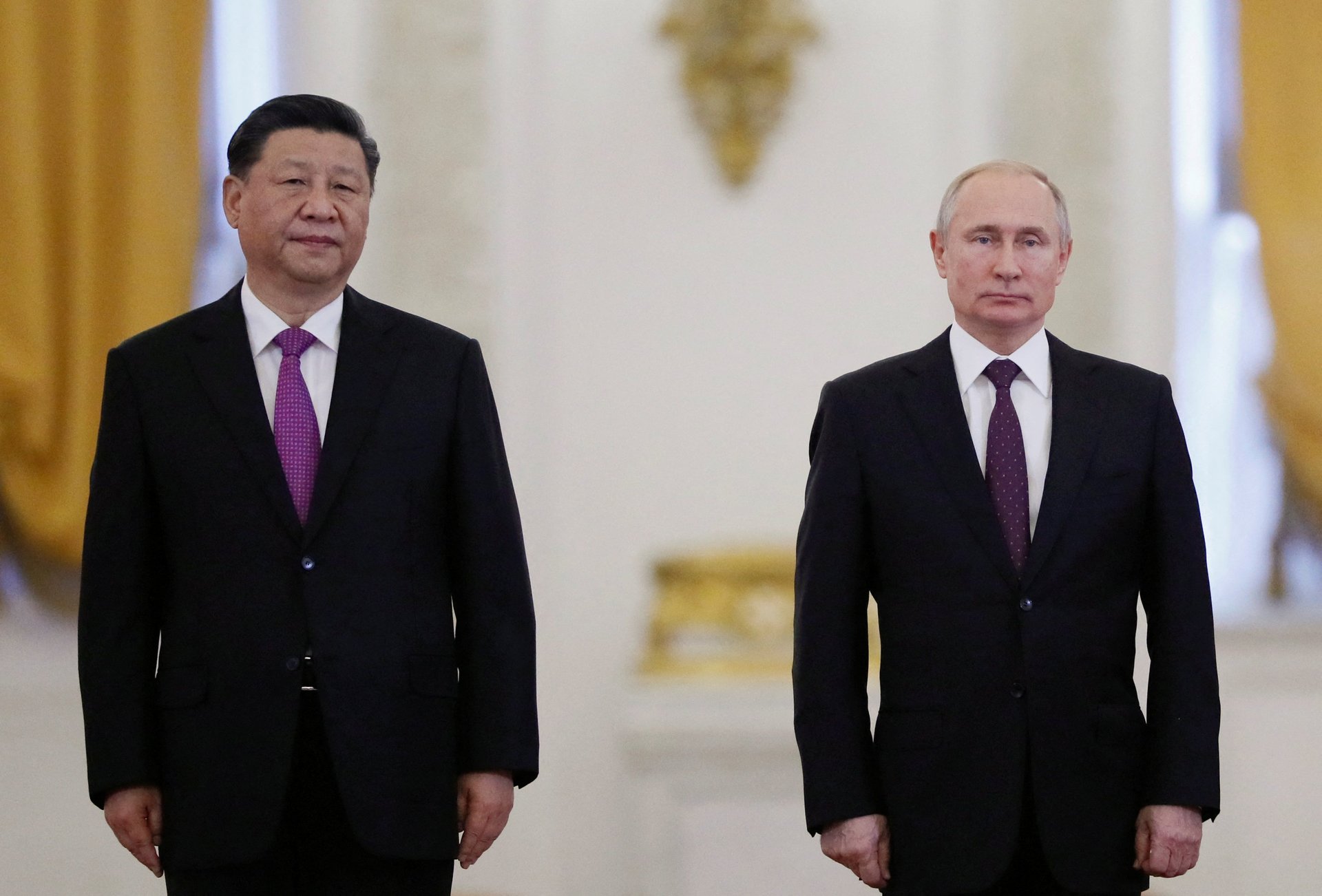What is China’s stand on the Russia-Ukraine conflict?
China so far has avoided indicating a clear stance on the escalating crisis in Ukraine, reflecting its need to strike a delicate balance between the West and Russia.


China so far has avoided indicating a clear stance on the escalating crisis in Ukraine, reflecting its need to strike a delicate balance between the West and Russia.
China hasn’t condemned Russia’s decision to recognize separatist regions in Ukraine and send in troops, but foreign minister Wang Yi said over the weekend that every country’s sovereignty and territorial integrity “should be respected and safeguarded,” including Ukraine’s. Yesterday (Feb. 22), Wang and US secretary of state Anthony Blinken spoke by phone.
“China is concerned about the evolution of the situation in Ukraine,” Wang told Blinken, according to the Chinese foreign ministry’s statement on the call (link in Chinese), and repeated calls for all parties to “exercise restraint.”
On Thursday (Feb. 24), after Russia’s offensive began, China’s foreign ministry spokesperson Hua Chunying declined to label the operation an “invasion,” in response to questions pressing her to clarify Beijing’s position.
Russia is one of China’s closest allies
Russia has long had a close relationship with China, with the two countries drawing increasingly closer as their tensions with the US grow. Their alliance spans military cooperation, propaganda strategy, and energy security, with the last category especially gaining traction as Russia increasingly becomes an important source of liquefied natural gas for China, the world’s fastest growing market for this fuel.
Russian president Vladimir Putin was Chinese leader Xi Jinping’s most important guest at the Beijing Winter Olympics opening ceremony on Feb. 4. That day, they declared their cooperation had “no limits,” and released a 5,000-word document detailing all the many issues on which they shared a position, but said nothing about Ukraine. China’s state-run tabloid, the Global Times, last week published an article in which analysts accused the US of “spouting war rhetoric to hype up war risks,” and praised the Kremlin’s “composure.”
Chinese foreign ministry statement has blamed the current crisis on ineffective implementation of the Minsk agreement of 2015, which followed the annexation of Crimea.
Ukraine is a partner too
Despite China’s closeness with Russia, it also has friendly ties with Ukraine, which counts China as its top trading partner and a major buyer of military hardware. In addition, Ukraine has been an important hub for Chinese president Xi Jinping’s grand Belt and Road infrastructure program that seeks to build a new “silk road” that connects China better with countries in east Asia and Europe.
China has not recognized Russia’s annexation of Crimea.
Adding another layer of complexity, China also seeks to maintain good ties with the EU, especially as the US lobbies the bloc to follow its more aggressive China strategy.
Meanwhile, both Russia and Ukraine are using Chinese platform Weibo for propaganda, while China’s censorship instructions, accidentally leaked, urged careful screening of posts, and weeding out of posts critical of Russia or the West.
China’s embassy in Ukraine has urged its nationals (link in Chinese) in the country to stay indoors and “avoid windows and glass” to prevent potential injury. It also advises Chinese citizens to attach the Chinese national flag to “obvious spots” on cars when they have to drive long distances.
China says NATO expansion fuels tensions in Europe
In their Feb. 4 joint statement, China and Russia said they both opposed “further enlargement of NATO and call on the North Atlantic Alliance to abandon its ideologized cold war approaches.” Ukraine appears keen to join the North Atlantic Treaty Organization, which was formed after World War II as a counter to Soviet expansion in eastern Europe, and has since moved eastwards. For Russia, Ukraine’s possible entry is considered a red line.
At the Munich Security Conference on Saturday, Wang (video, from 1:57:30) received a question asking why, in the context of Ukraine, China doesn’t treat the decision to join NATO as a matter of national sovereignty, in which other countries shouldn’t interfere. He responded:
NATO was a product of the Cold War era and now we need to look at the current situation, and there needs to be an adaption. If there is a persistent eastward expansion, will that really guarantee peace in Europe, will that truly lead to lasting peace and stability in Europe? I believe this is a question that our friends in Europe need to have serious consideration about.